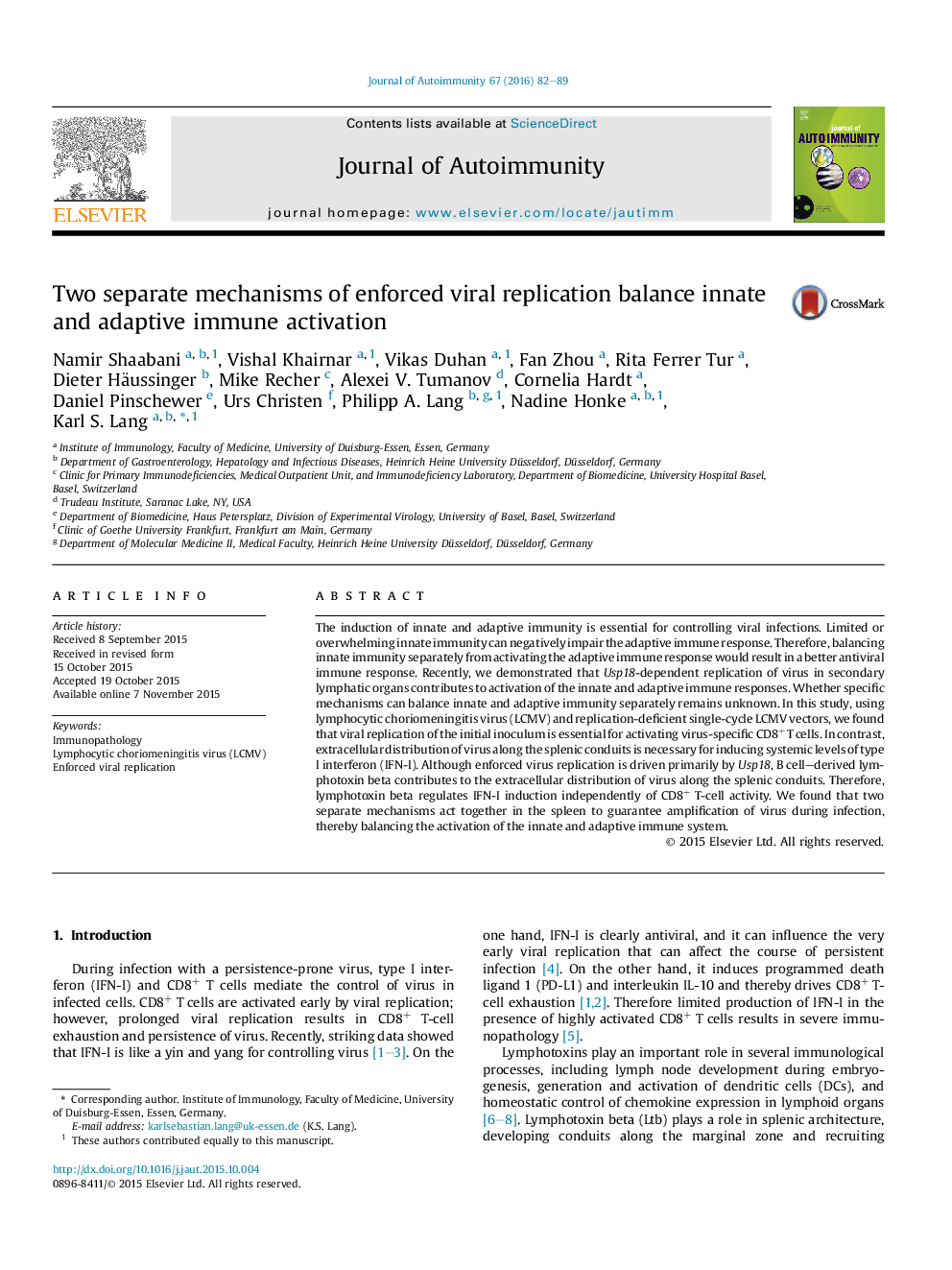| Article ID | Journal | Published Year | Pages | File Type |
|---|---|---|---|---|
| 6119189 | Journal of Autoimmunity | 2016 | 8 Pages |
Abstract
The induction of innate and adaptive immunity is essential for controlling viral infections. Limited or overwhelming innate immunity can negatively impair the adaptive immune response. Therefore, balancing innate immunity separately from activating the adaptive immune response would result in a better antiviral immune response. Recently, we demonstrated that Usp18-dependent replication of virus in secondary lymphatic organs contributes to activation of the innate and adaptive immune responses. Whether specific mechanisms can balance innate and adaptive immunity separately remains unknown. In this study, using lymphocytic choriomeningitis virus (LCMV) and replication-deficient single-cycle LCMV vectors, we found that viral replication of the initial inoculum is essential for activating virus-specific CD8+ T cells. In contrast, extracellular distribution of virus along the splenic conduits is necessary for inducing systemic levels of type I interferon (IFN-I). Although enforced virus replication is driven primarily by Usp18, B cell-derived lymphotoxin beta contributes to the extracellular distribution of virus along the splenic conduits. Therefore, lymphotoxin beta regulates IFN-I induction independently of CD8+ T-cell activity. We found that two separate mechanisms act together in the spleen to guarantee amplification of virus during infection, thereby balancing the activation of the innate and adaptive immune system.
Related Topics
Life Sciences
Immunology and Microbiology
Immunology
Authors
Namir Shaabani, Vishal Khairnar, Vikas Duhan, Fan Zhou, Rita Ferrer Tur, Dieter Häussinger, Mike Recher, Alexei V. Tumanov, Cornelia Hardt, Daniel Pinschewer, Urs Christen, Philipp A. Lang, Nadine Honke, Karl S. Lang,
